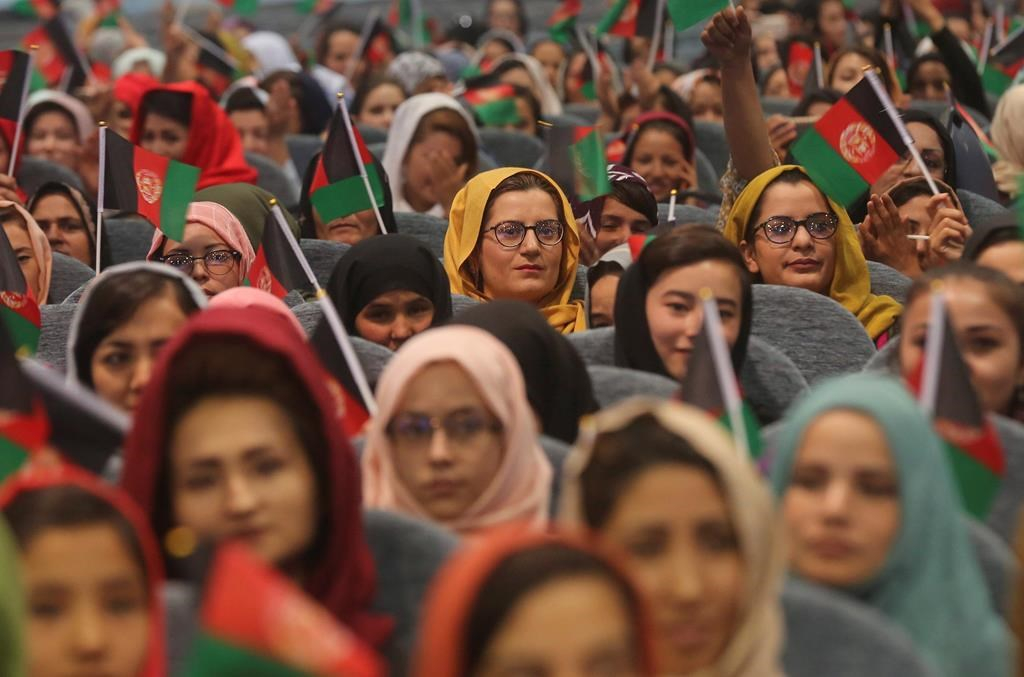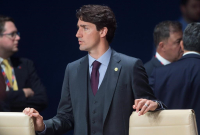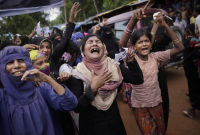Support strong Canadian climate journalism for 2025
An internal review of the nearly $1 billion in foreign aid that Canada quietly spent in Afghanistan after the Canadian military pulled out has found some successes but also many failures — especially when it comes to helping women and girls.
The Global Affairs Canada review covers the period between 2014 and 2020, during which Afghanistan remained a top destination for Canadian aid dollars even after the last Canadian troops had left and public attention drifted elsewhere.
Published on the department’s website late last month, the reviewers’ final report comes amid another round of peace talks between the Afghan government and Taliban to end decades of nearly continuous fighting in the country.
It also follows a Canadian commitment in November to contribute another $270 million in aid over the next three years to Afghanistan, adding to the heavy investment that Canada has already made in the country since 2001.
The reviewers found that the $966 million in Canadian foreign aid spent since 2014 was almost entirely focused on empowering and supporting Afghan women and girls, particularly after the Liberals launched their feminist-aid policy in 2017.
Those efforts led to some tangible progress, including the adoption of gender equality in some Afghan institutions, a decrease in violence against women in some communities, more educational opportunities for girls and better health-care services for both.
“Projects in the womens’ and girls’ rights and empowerment sector resulted in female beneficiaries becoming more active, confident and self-sufficient,” adds the reviewers’ report.
Yet the review, which included analyzing internal Global Affairs documents and interviews with Canadian, Afghan and international government staff and NGOs as well as average Afghans affected by the projects, found many problems as well.
Chief among them was a failure to ensure Canada’s attempts to increase gender equality included “a deeper understanding of Afghanistan’s local cultural context and Islamic tradition.” It also failed to include men and boys in its programs.
“The definition of gender roles was so central to Afghan society and culture during the period that any planned changes required not only consultation with male household members, but also with the larger community,” the report said.
Those shortcomings threatened to leave the perception of gender equality being imposed on Afghans, the report said, adding: “If not carefully managed, there was the risk that gender-equality efforts promoted by Western donors could lead to backlashes and harm.”
The reviewers cited several examples, such as women who used shelters to escape domestic violence being shunned by their families and women in the Afghan army facing direct threats, as among the unintended consequences of current efforts.
Memorial University foreign aid expert Liam Swiss, who has written extensively on the Liberals’ feminist approach to foreign aid, said the report’s findings reflected many of the concerns and criticisms that were voiced when the policy was first launched.
That includes a one-size-fits-all strategy that didn’t take into account the local conditions and culture in the countries where Canadian aid is being channelled — of which Afghanistan is one of the most difficult.
“That's the problem when you kind of stake out a really broad set of priorities on your aid,” Swiss said. “If you're trying to make them apply to all and to everywhere, you're going run into a lot of issues of local appropriateness, local receptivity.”
The reviewers also suggested that Canada was guilty of the same sins as many of its western counterparts in Afghanistan, namely focusing its aid dollars on areas that it was more interested in than what was really needed in the country.
That was reflected in the lack of consultations with local communities and a limited consideration for the specific needs of the many different ethnic and religious communities in Afghanistan, which undermined their effectiveness and sustainability.
In fact, the reviewers found Canada did not actually have a strategy for its engagement in Afghanistan. Global Affairs also failed to adapt to the changing needs and environment as the Afghan government lost territory to the Taliban between 2017 and 2020.
The report instead paints a picture of Canadian diplomats and aid workers keeping their eyes firmly glued on their own priorities even as the Taliban was wresting more and more of the country away from Kabul.
To that end, the reviewers said nearly all of those interviewed as part of their study believed the progress made by Canadian aid efforts over the years will be threatened or completely undone if security in the country deteriorates further.
That possibility continues to loom over Afghanistan’s future amid the peace talks and as the world waits to see whether incoming U.S. president Joe Biden will continue the Trump administration’s work to withdraw American forces from the country.
Global Affairs spokeswoman Patricia Skinner said while the report shows progress has been made in Afghanistan, the department will address the reviewers’ six recommendations — including changing how it promotes gender equality — over the next two years.
Nipa Banerjee, who previously led Canadian aid efforts in Afghanistan before joining the University of Ottawa, said she hopes the review will lead to changes – including a more expansive approach.
“With all the insecurity and everything, shouting about women's rights only, it's not going to be very helpful,” Banerjee said.
“And Afghans themselves think that. They're saying it is important, but without security and without political order, nothing will succeed. Women's programs will not go anywhere. So there has to be compromises.”
This report by The Canadian Press was first published Jan. 13, 2021.





Comments